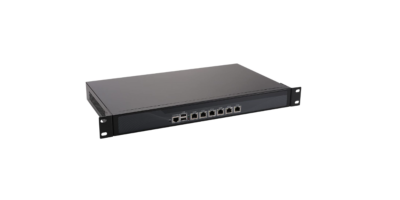In the fast-paced healthcare industry, where every second counts, downtime isn’t just inconvenient – it can be life-threatening. Whether caused by technical failures, cyberattacks, or outdated systems, IT downtime disrupts critical medical operations, delays patient care, and puts sensitive data at risk. That’s why having reliable IT support for healthcare is crucial to minimizing downtime and ensuring seamless patient care. In this blog, we’ll explore how IT support for healthcare can reduce downtime and improve overall efficiency.
The Problem: Downtime in Healthcare is Dangerous
Downtime in healthcare environments isn’t just a financial or operational issue—it directly impacts patient safety. Here are some key challenges associated with IT downtime in healthcare:
1. Disrupted Patient Care
IT systems manage everything from patient records and diagnostic tools to telemedicine platforms and appointment schedules. If these systems go offline, it delays diagnoses, interrupts treatments, and compromises the patient experience.
2. Loss of Revenue
Hospitals, clinics, and private practices rely on functioning IT systems to process claims, manage billing, and book appointments. Prolonged downtime can lead to lost revenue and strained relationships with insurance providers.
3. Data Breaches and Compliance Risks
With healthcare data being highly sensitive, downtime increases the vulnerability to cyberattacks. Additionally, it may lead to non-compliance with regulations such as HIPAA, resulting in hefty fines.
4. Strained Resources
IT failures often lead to manual workarounds, diverting staff from patient care and overburdening resources.
Solution: Leveraging IT Support for Healthcare
Robust IT support for healthcare is the cornerstone of reducing downtime and ensuring seamless operations. Here’s how dedicated IT support can make a transformative difference:
1. Proactive Monitoring and Maintenance
With proactive IT support, healthcare organizations can identify and address potential issues before they escalate into full-blown problems. Regular system checks, software updates, and security patches keep systems running smoothly and securely.
2. 24/7 Technical Support
Around-the-clock technical support ensures that IT issues are resolved quickly, regardless of the time. This reduces downtime and provides staff with the confidence to handle emergencies without technical roadblocks.
3. Disaster Recovery Planning
IT support teams create robust disaster recovery plans to protect critical data and maintain operational continuity during system failures or cyberattacks. Cloud-based backups, for instance, enable quick data recovery and minimize disruptions.
4. Tailored Solutions for Healthcare Systems
Healthcare IT systems often include Electronic Health Records (EHR), diagnostic tools, and patient portals. Specialized IT support understands these unique systems and ensures they integrate seamlessly while remaining compliant with healthcare regulations.
5. Enhanced Cybersecurity
IT support teams fortify defenses against cyber threats by deploying firewalls, endpoint protection, and intrusion detection systems. They also train staff on best practices to avoid phishing and other cyber risks.
6. Scalability
As healthcare organizations grow, their IT needs evolve. Dedicated IT support ensures scalable solutions, such as cloud-based systems, to accommodate growth without disruption.
How IT Support for Healthcare Benefits Providers
Investing in specialized IT support for healthcare goes beyond reducing downtime. It also:
- Improves Patient Outcomes: By minimizing disruptions, providers can focus on delivering timely and accurate care.
- Boosts Staff Productivity: Automated systems and reliable IT support free staff from manual tasks, allowing them to focus on patient care.
- Strengthens Compliance: IT support ensures adherence to regulations like HIPAA, reducing legal and financial risks.
- Enhances Reputation: A track record of seamless operations builds trust with patients and stakeholders alike.
According to a Ponemon Institute study, the estimated cost of unplanned downtime in healthcare is around $7,900 per minute. Proactive IT support reduces downtime, enhancing system reliability and safeguarding data security.
Best Practices for IT Support in Healthcare
To maximize the benefits of IT support, healthcare providers should adopt the following best practices:
- Partner with Industry Specialists: Choose IT providers who understand the nuances of healthcare systems and regulations.
- Regular Staff Training: Equip employees with knowledge on cybersecurity and basic troubleshooting.
- Implement Redundancy: Have backup systems in place to minimize the impact of hardware or software failures.
- Conduct Regular Audits: Periodic evaluations of IT infrastructure identify vulnerabilities and improvement opportunities.
Conclusion
Downtime in healthcare is more than a technical issue – it’s a risk to patient safety, staff morale, and organizational reputation. With specialized IT support for healthcare, providers can proactively address challenges, ensure operational continuity, and deliver superior patient care.
Investing in robust IT support is not just about technology; it’s about empowering healthcare organizations to thrive in an increasingly digital landscape. Don’t let downtime hold you back—choose reliable IT support to safeguard your operations and build a healthier future.
Get Started with Reliable IT Support for Healthcare
Are you ready to reduce downtime and enhance your healthcare operations? Partner with MedicalITG for proactive IT support that keeps your systems running smoothly and securely.
Contact us today to learn more about how we can transform your IT infrastructure. Call us on (877) 220-8774 or email at info@medicalitg.com.










